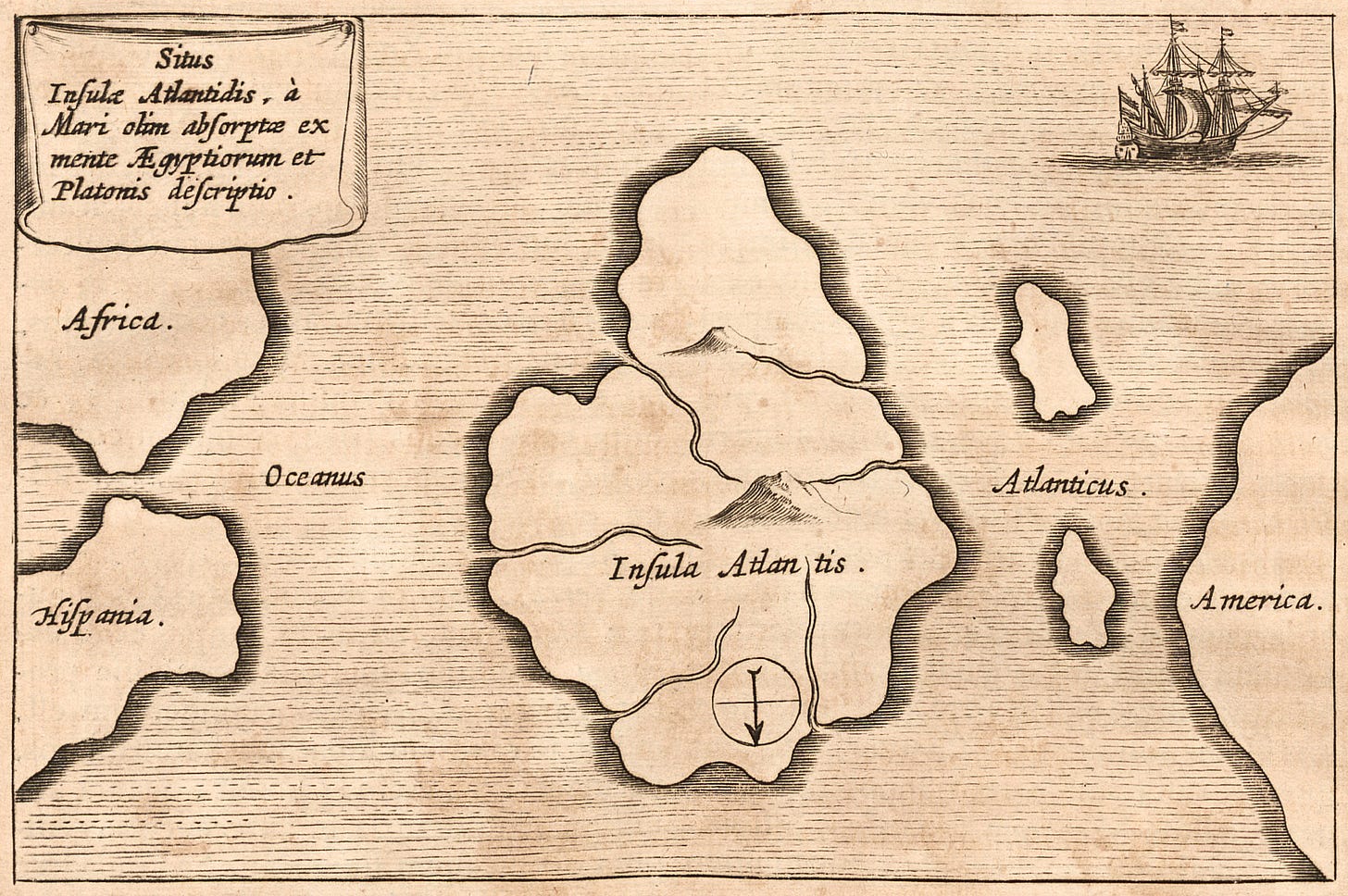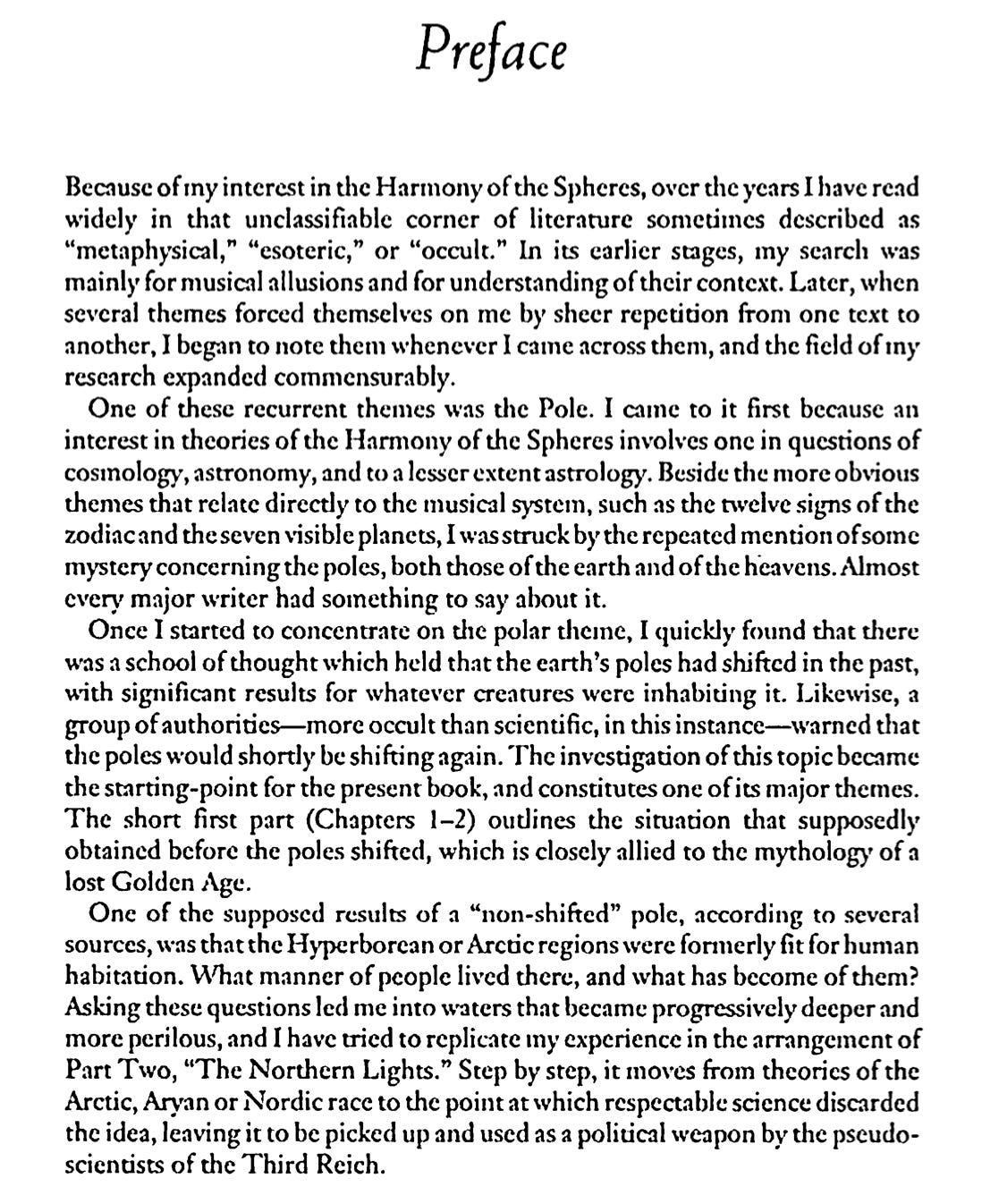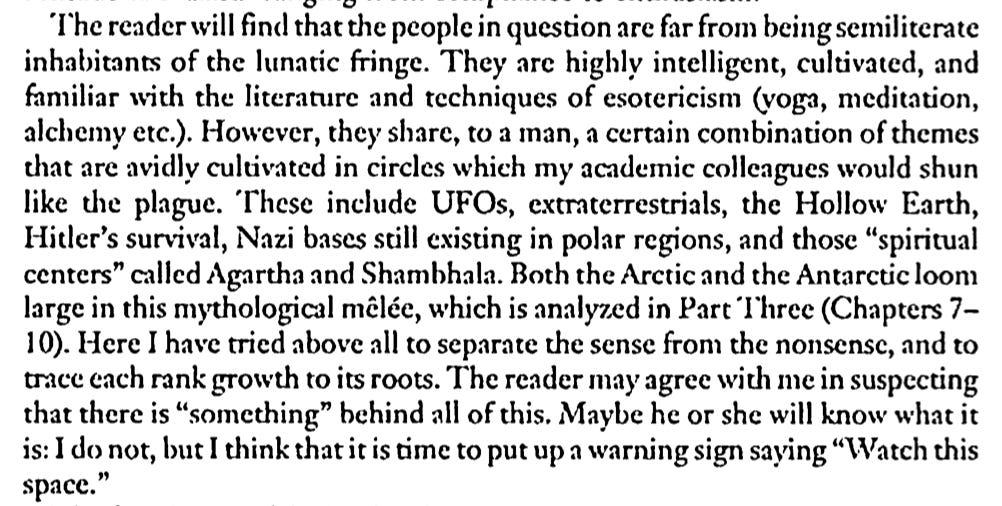Between Xanadu and Shambhala (Part I)
Polar Origins, Atlantis, Hollow Earth, and the Dreams of the Romantics
In Xanadu did Kubla Khan
A stately pleasure-dome decree:
Where Alph, the sacred river, ran
Through caverns measureless to man
Down to a sunless sea.
-Samuel Coleridge
One of my oldest childhood memories was watching the Disney film Atlantis with my father. Something about that world resonated with my childhood mind: a wonder, a reverberation. I recall renting the movie again and again from Blockbuster Video, spellbound and enchanted, obsessed with this mythical world animating the television screen. Atlantis.
It would only be much later that I would discover that Atlantis was not the creative fancy of a handful of Disney executives, but a cultural memory as old as the Western Canon, given fresh form in animation.
Now in this island of Atlantis there existed a confederation of kings, of great and marvellous power, which held sway over all the island, and over many other islands also and parts of the continent; and, moreover, of the lands here within the Straits they ruled over Libya as far as Egypt, and over Europe as far as Tuscany….. But at a later time there occurred portentous earthquakes and floods, and one grievous day and night befell them, when the whole body of your warriors was swallowed up by the earth, and the island of Atlantis in like manner was swallowed up by the sea and vanished; wherefore also the ocean at that spot has now become impassable and unsearchable, being blocked up by the shoal mud which the island created as it settled down.”
-Plato
A certain cultural meme or memory is embedded within legends and folk traditions the world over. That of ancient realms from man’s prehistory, lost cities, forgotten continents— either to our far north or below our feet—-which were inhabited by Gods and/or primordial man. A primordial man wholly superior to the men of today. Stories of these mythical locations resonate with us, due to a single idea— or maybe a hope— that mankind refuses to relinquish:
“That there was high culture in prehistoric times.”
There is a radical implication here. An implication that would shatter our modern conceptions of history and human evolution. If a wholly superior man once walked the earth, it would imply that modern man is not the apex of a long historical march of progress, on the contrary, it would mean that we as a species are amid a profound degeneration.
I will be attempting something ambitious in this series of articles, and I may as well explain myself now. There is no easy way to introduce the subject matter I will be exploring, especially to a complete neophyte in the realm of esoteric geography, and so my task becomes even harder, as supplying the background information to make sense of my thesis would require many books of their own. I reckon the best introduction may be to quote the preface of one of Joscelyn Godwin’s books, an academic I am personally indebted to, for no man to my knowledge has supplied such a comprehensive and sober assessment of this weird material. (I would also like to thank my friend Plethonist on twitter for introducing me to all of this).
(Arktos: The Polar Myth)
After reading this, you may be left even more confused, “What the hell does this have to do with Atlantis?” Quite a lot. And hopefully, this will soon enough become clear.
I would like you to accompany me on another journey into the weird. And the figures that we shall discuss in the coming articles, while sure as hell strange, are certainly not stupid. Now please, give me some time, I promise we will be getting somewhere.
________________






